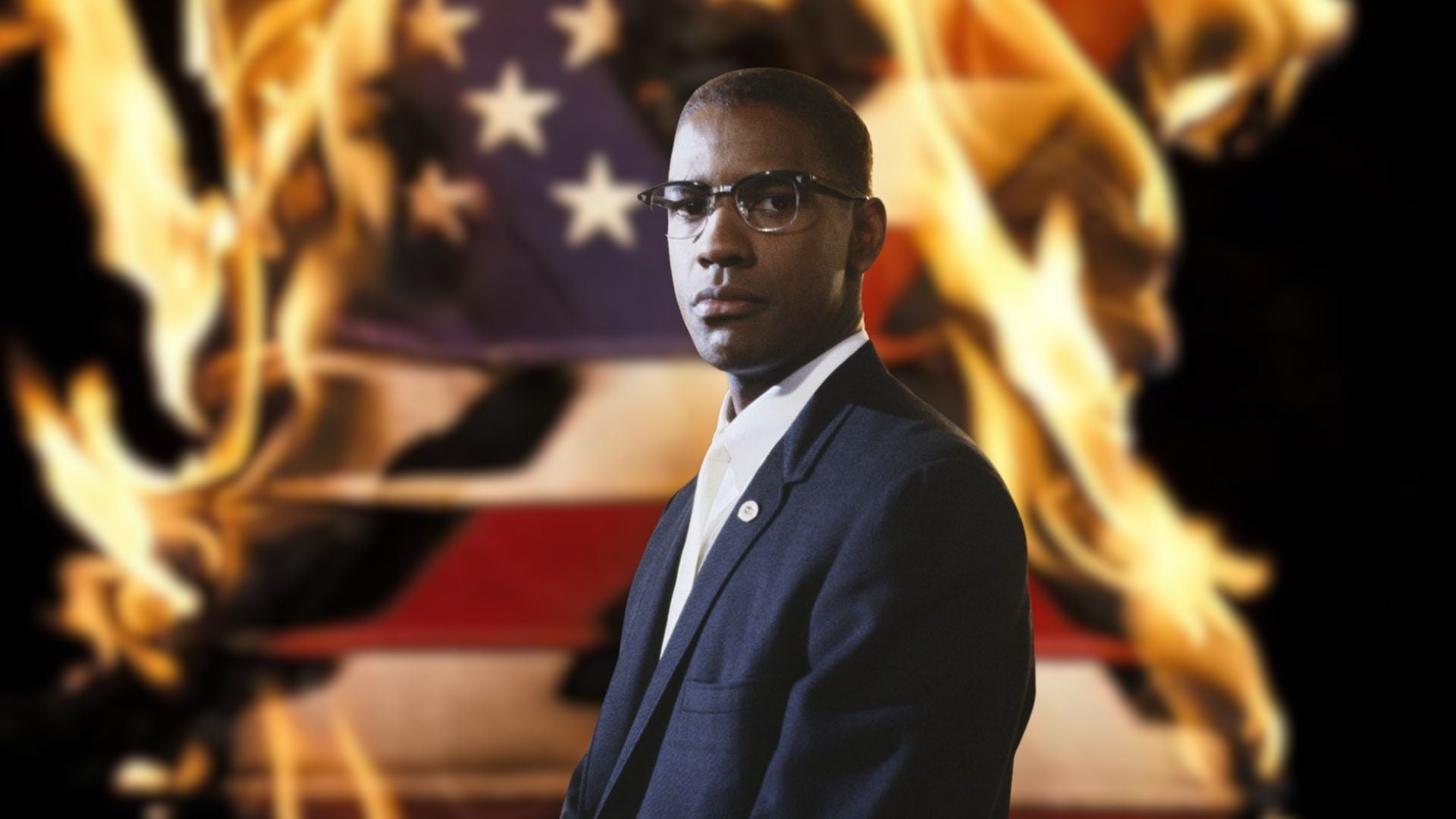
Malcolm X – To be or not to be American?
In a world filled with countless cinematic experiences, certain films resonate deeply, creating an indelible impact on viewers. Spike Lee’s “Malcolm X” is one such masterpiece. This film is more than just a biographical portrayal; it’s a profound exploration of history, culture, and the intricacies of human transformation. As we delve into the film, let’s examine the multifaceted nature of its storytelling, performances, and its enduring relevance today.
Hosted By
KT & Oti
For Your Reference
Show Notes
Welcome to our Reference Degustation where we take you through a month long double dolly celebration of Spike Lee Joints.
Discern the white (devil) dictionary and throw off the shackles of cultural colonialism from Harlem to Soweto. Tap into the region where the people had color with Spike Lee’s Malcolm X this week.
If you’d like to watch along, we will be covering the below…
Do The Right Thing (1989)
Malcolm X (1992)
Bamboozled (2000)
BlacKkKlansman (2018)
Thanks to patrons and guests for contributing to common and recurring themes we will be incorporating as we review. Check out Brent/Home Video Hustle’s review episode of Malcolm X and Dan Mecca’s piece on Spike Lee.
Check out more tasty Reference Degustations…
We also posted coverage for exclusive early access to Sinners Trailer 2 and had our submitted question answered by Ryan Coogler.
—
Summary
In a world filled with countless cinematic experiences, certain films resonate deeply, creating an indelible impact on viewers. Spike Lee’s “Malcolm X” is one such masterpiece. This film is more than just a biographical portrayal; it’s a profound exploration of history, culture, and the intricacies of human transformation. As we delve into the film, let’s examine the multifaceted nature of its storytelling, performances, and its enduring relevance today.
Introduction
As part of our ongoing cinematic degustation, we dive headfirst into Spike Lee’s monumental work, “Malcolm X,” with the engaging hosts KT and Oti from the For Your Reference Podcast. This discussion is not merely about dissecting a film; it’s an exploration of Spike Lee’s artistry, the historical context of Malcolm X’s life, and the intricate layers of societal commentary woven throughout.
Malcolm X’s Journey and Transformation
Malcolm X, portrayed by the incomparable Denzel Washington, undergoes a significant transformation over the film’s runtime. The film faithfully chronicles Malcolm’s tumultuous early years, his rise within the Nation of Islam, and his eventual pilgrimage to Mecca, where he confronts his beliefs and seeks personal redemption. Spike Lee captures the fullness of Malcolm’s life, reflecting his complexities and the societal pressures shaping his narrative.
The Cinematic Techniques of Spike Lee
Spike Lee’s distinctive style and narrative technique are central to the film’s power. From the vibrant use of color to the seamless blending of real documentary footage, every frame of “Malcolm X” is carefully constructed to evoke emotion and provoke thought. The film opens with a riveting sequence featuring a powerful speech against the backdrop of the Rodney King footage, immediately setting the tone for a film that’s uncompromising in its message.
Religion and the Nation of Islam
A significant theme explored in the podcast is the intersection of religion and power. Malcolm’s transition from a preacher of the Nation of Islam to a more universally understood figure highlights the complexity of religious leadership and the personal evolution Malcolm X undergoes. The discussions shed light on the dichotomy of religious ideology versus tangible freedom and resistance, a theme Spike Lee adeptly portrays through his storytelling.
Ownership and Creative Control
One of the hallmarks of Spike Lee’s filmmaking is his insistence on creative autonomy. Despite the challenges of working with major studios, Spike Lee has consistently maintained control over his work, ensuring that the films he creates remain true to his vision. This principle of ownership is echoed in the podcast discussion, correlating with broader themes of artistic independence and cultural representation.
Final Thoughts and Reflections
The podcast closes with a reflection on the film’s lasting impact and emotional weight. The captivating performances, particularly by Denzel Washington, and the thoughtful direction elevate “Malcolm X” to a cinematic epoch that challenges viewers to confront history and its ongoing relevance in today’s society. Through its detailed exploration of Malcolm X’s life and Lee’s masterful direction, the film remains a vital analysis of race, power, and personal transformation.
In celebrating the film, the hosts invite listeners to engage deeply with its themes, encouraging a broader discourse around the cultural implications of Malcolm X’s story. With future courses like “Bamboozled” and “BlackKklansman” on the way, the Four Year Reference Podcast continues to delve into Spike Lee’s significant contributions to cinema and society.
Join the Conversation
As we wrap up another enriching discussion on For Your Reference, we invite you, the readers and listeners, to share your insights on “Malcolm X” and its broader cultural significance. Whether you’re revisiting the film or experiencing it for the first time, join us in this cinematic journey and explore the profound impact of Spike Lee’s vision on both individual and collective consciousness.
Episode Details
- Duration
- 0:00
- Released
- February 11, 2025
- Category
- Episode
- Hosts


Up Next
We Need to Talk About Kevin – Deliver Us From Eva
February 10, 2026
Ratcatcher – What’s New Pussycat?
February 3, 2026
Marty Supreme, 28 Years Later: The Bone Temple, Night Patrol & My Brother’s Band
January 31, 2026